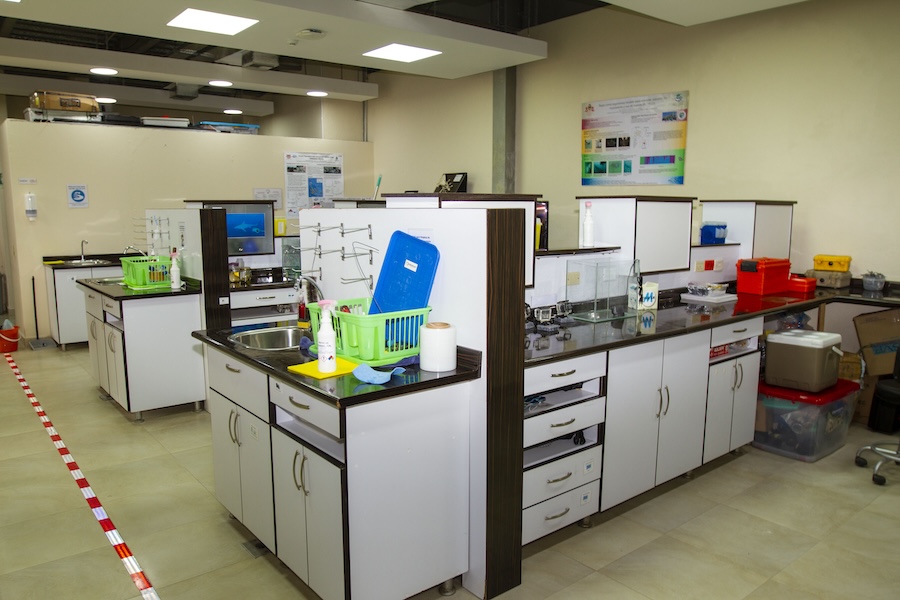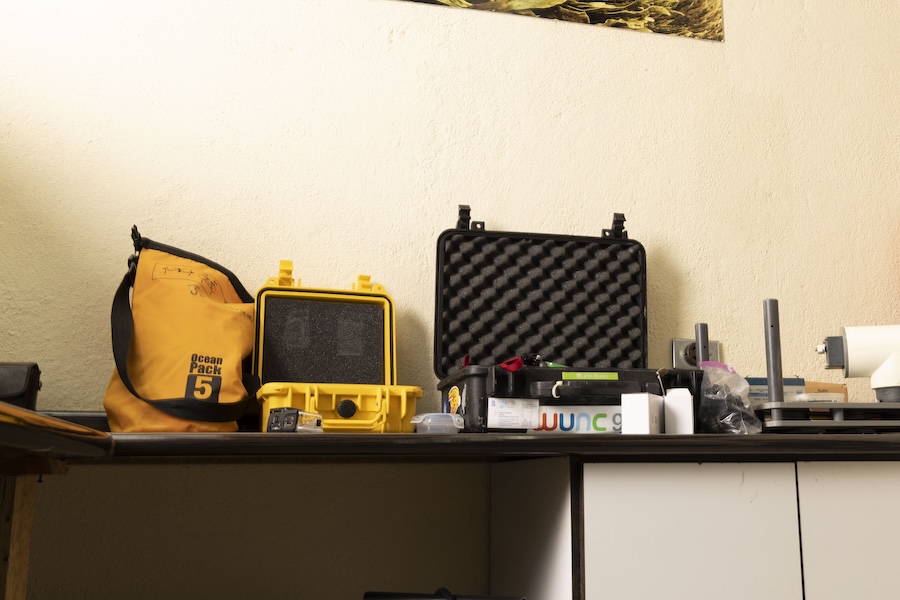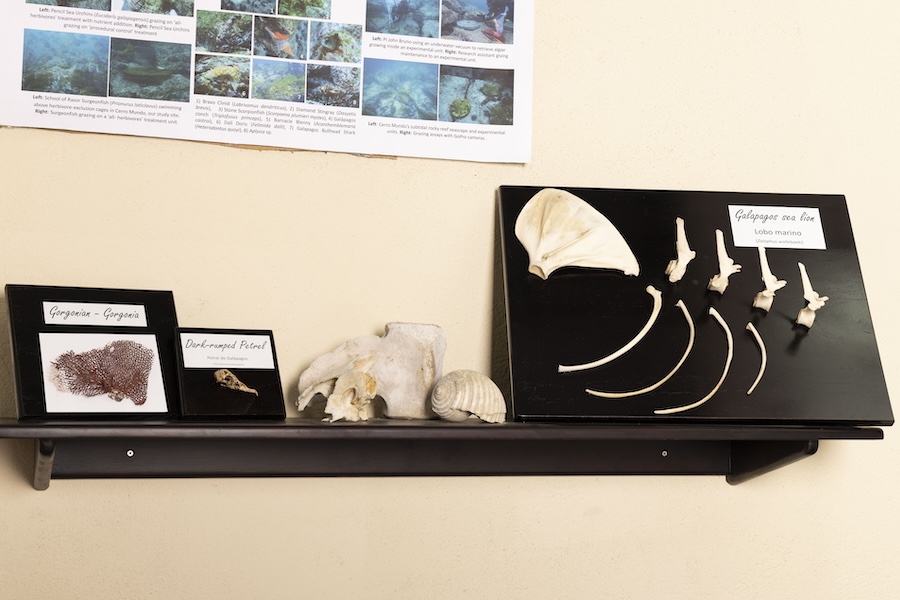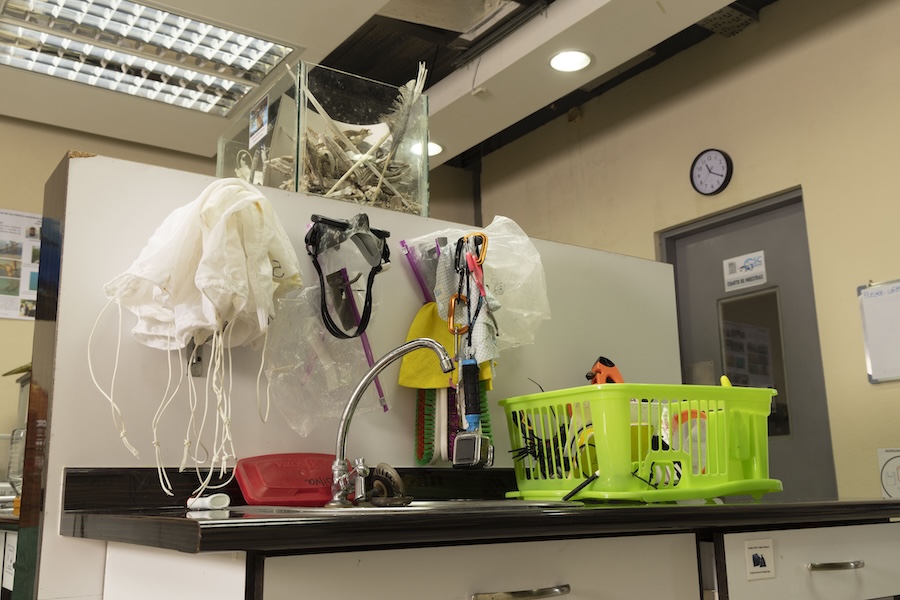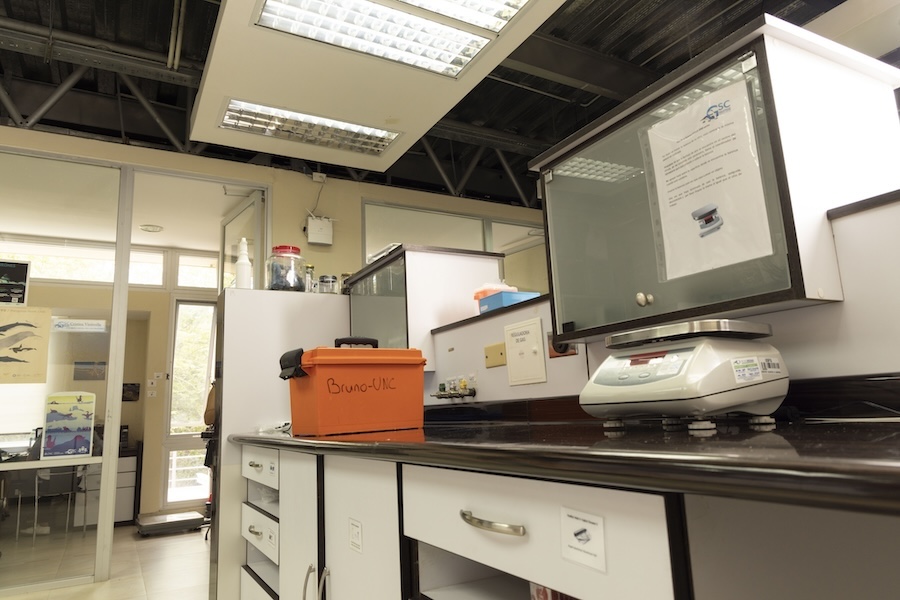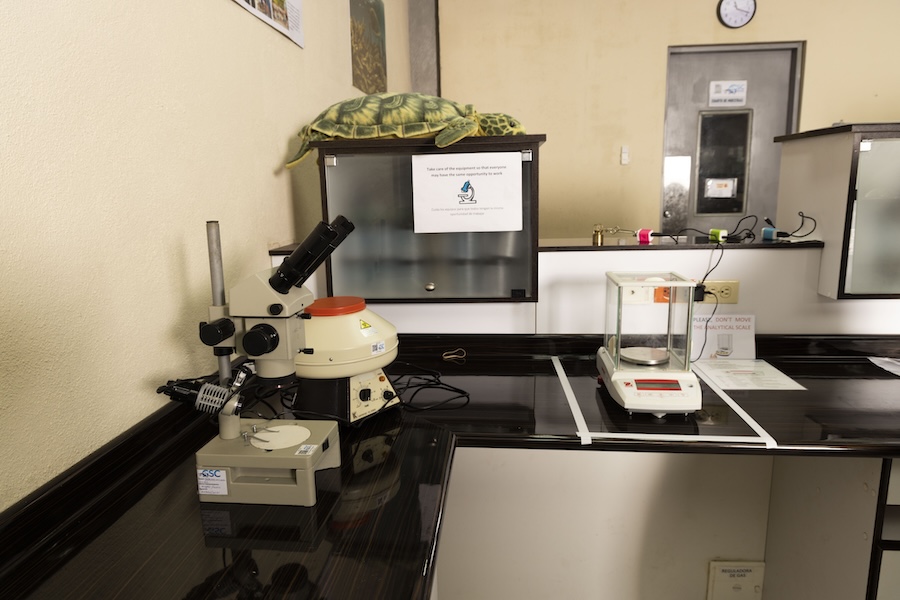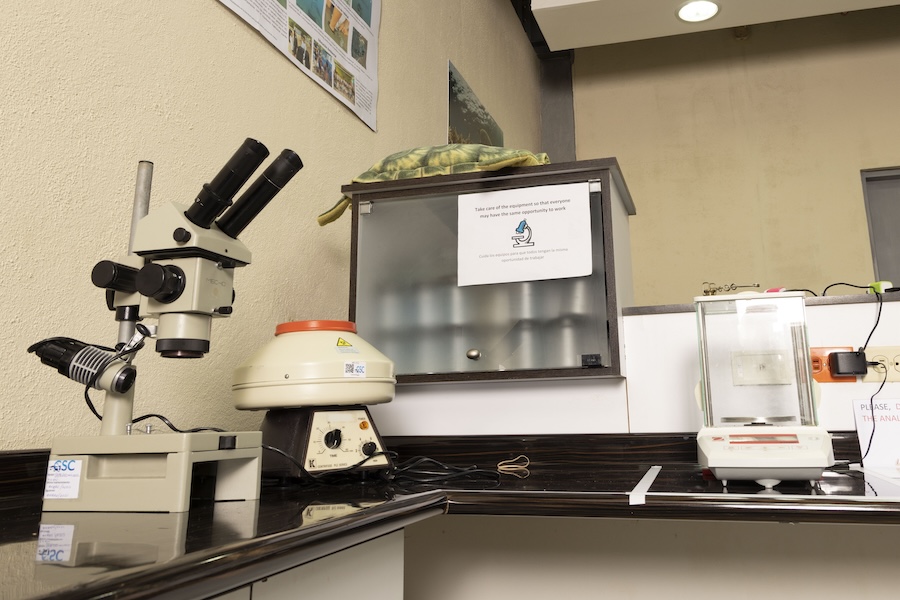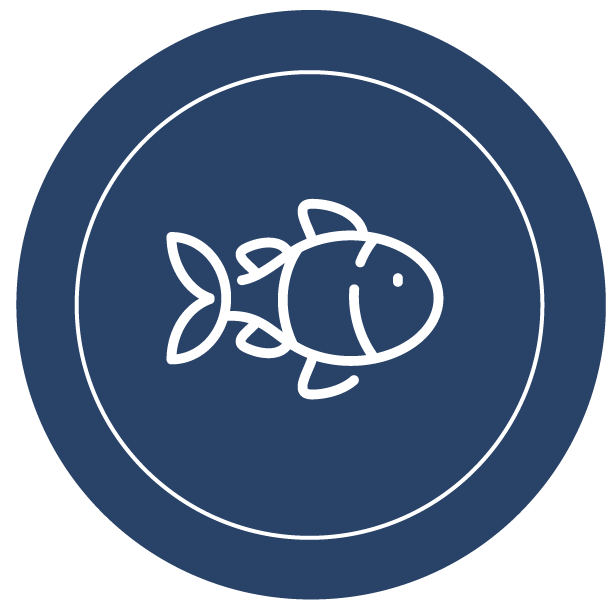
MARINE ECOLOGY LABORATORY
The activities carried out in the Marine Ecology Lab are focused on ecological, biological, and genetic studies of different populations of marine species that inhabit both the open sea and intertidal zones of the Galapagos.
The range of projects developed in this lab vary in objectives and scope, from efforts to understand the basis of the food chain and how it fluctuates with oceanographic changes to conserving migratory species like sharks, sea turtles, and cetaceans by better understanding and solving the global problem of plastics pollution.
Scope of projects conducted in this laboratory
A variety projects are conducted in our Marine Ecology Lab ranging from primary productivity to marine megafauna.
For example, Dr. Adrian Marchetti (UNC) studies Galapagos waters to better understand the effects of baseline oceanographic conditions, El Niño events, and the impacts of climate change on the production of phytoplankton throughout the Galapagos Marine Reserve.
Tracking Climate Change Impacts
Research is also conducted by Dr. Maggy Brandt (USFQ) and her collaborators Dr. Mike Kingsford (James Cook University) and Dr. John Bruno (UNC) in GSC´s aquarium mesocosm where they can control and modify seawater parameters to identify long term changes in the ecosystem and fauna caused by climate change.
Understanding Marine Migratory Species
There are also many projects focused on better understanding marine migratory species such as the research of Dr. Alex Hearn (USFQ) on sharks as well as Daniela Alarcón (GSC) and Juan Pablo Muñoz (USFQ) and their work with sea turtles and cetaceans, all providing valuable information to help inform policies that create protected marine corridors for these important species.
Understanding the main threats to the oceans
Finally, we conduct research to better understand the main threats to the oceans and the species that inhabit them. For example, Juan Pablo Muñoz (USFQ) has been researching and raising awareness around the global plastic pollution problem, highlighting the necessity to change our consumption habits in order to preserve our ecosystem.
The Marine Ecology Lab has the followint facilities:
- Cold room for sample storage
- Office space
- Diving equipment
- Terrace for external experiments
- Necropsy room
- Experimental mesocosms system area.
The Marine Ecology Lab is equipped with the following:
- Vacuum pump
- Portable freezer DOMETIC
- Saltwater pump
- Zodiac
- Nautilus radios
- Muffle oven
- Diving tanks
- Magnetic Stirrer
- Ultra-Low Temperature Freezer -80 °C.
- CastAway CTD
- Centrifuge PCL series
- Analytical balance OAHUS
- Stereomicroscope Olympus and MGC-10
- MCMURDO Smartfind S20
- IsatPhone – satellite phone
- Generator YAMAHA ef2600
- Outboard YAMAHA motor
- CastAway CTD
- Centrifuge PCL series
- Analytical balance OAHUS
- Stereomicroscope Olympus and MGC-10
- MCMURDO Smartfind S20
- IsatPhone – satellite phone
- Generator YAMAHA ef2600
- Outboard YAMAHA motor
- Vacuum pump
- Portable freezer DOMETIC
- Saltwater pump
- Zodiac
- Nautilus radios
- Muffle oven
- Diving tanks
- Magnetic Stirrer
- Ultra-Low Temperature Freezer -80 °C.
